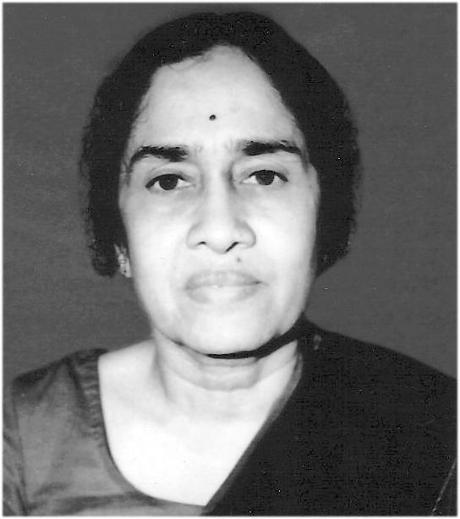 Google+0Twitter0Facebook0
Google+0Twitter0Facebook0Day 11 of the Blogging from A to Z Challenge brings us to K and it is K for Kamala Sohonie, the first Indian woman to get a PhD in a scientific discipline. She was a biochemist.
Kamala Sohonie’s life symbolized the struggle waged by the pioneering Indian women scientists.
 Kamala was born in 1912. Her father Narayanrao Bhagwat and his brother Madhavrao were distinguished chemists and were among the first to pass out from the Indian Institute of Science, Bangalore.
Kamala was born in 1912. Her father Narayanrao Bhagwat and his brother Madhavrao were distinguished chemists and were among the first to pass out from the Indian Institute of Science, Bangalore.
Kamala did her B.Sc., with physics and chemistry from the Bombay University.
As the university topper she thought it would be easy for her to get admission in the Bangalore institute for further research. Little did she know that brilliance and family support alone were not enough to ensure her entry into male-dominated science.
Can you believe that the illustrious scientist Nobel Laureate Sir C. V.Raman who established the Indian Institute of Science (IISc), Raman Research Institute (RRI) and laid a strong foundation for journals in India was against having women students? When Kamala applied to the IISc in 1933, Raman dismissed her application even though she topped the merit list. Undeterred, she confronted Raman, who relented, grudgingly. He admitted her on probation, on condition that she should not disturb the male researchers. Kamala was upset, but accepted.
Later, she recounted, “Though Raman was a great scientist, he was very narrow-minded. I can never forget the way he treated me just because I was a woman. Even then, Raman didn’t admit me as a regular student. This was a great insult to me. The bias against women was so bad at that time. What can one expect if even a Nobel Laureate behaves in such a way?”
A year later, satisfied with Kamala’s work, Raman allowed her to do regular research in biochemistry. It was also a landmark year when he started allowing women students to the Institute. Kamala worked hard on her research and got her MSc degree. As a graduate in 1936, she was the first to work on pulse proteins, which had significant implications for a malnourished India. After shCe received her MSc degree, she went to Cambridge University where she worked on plant tissue and discovered that every cell of a plant tissue has the same enzyme ‘Cytochrome C’ – which played a role in the oxidation of all plant cells. This was an original discovery.
Kamala soon received two scholarships and her dream of working with eminent scientists and Nobel Laureates came true. She sent a short thesis describing her finding of ‘Cytochrome C’ to Cambridge University for her Ph.D degree. Her entire Ph.D – research and writing took only 14 months and consisted of just 40 typed pages. She was the first Indian.man to get a PhD in a science discipline!
In 1939 she returned to India, and worked as the head of the Department of Biochemistry at the Lady Hardinge College, New Delhi. Later she became the Assistant Director of the Nutrition Research Laboratory, Coonoor where her research focused on the effect of vitamins.
In 1947, she married M.V.Sohonie, an actuary by profession and moved to Bombay and joined the newly established Biochemistry Department at the (Royal) Institute of Science. With her students Kamala carried out detailed biochemical studies on three major groups of food items consumed by the rural poor and thus established their nutritive values. At the suggestion of the first Indian President Dr. Rajendra Prasad she did pioneering work on Neera and received the President’s Award.
The introduction of Neera in the diet of tribal malnourished adolescent children and pregnant women caused significant improvement in their overall health.
Kamala was an active member of the Consumer Guidance Society of India (CGSI) where she worked with double vigor. In 1982-83 she was elected President of the CGSI and wrote many articles on consumer safety for their magazine Keemat
Though she was very happy with her research work, Kamala was quite distressed with the jealousies and politics at the Institute where the Directorship was denied to her for many years. She attributed her successful scientific career to her father, teacher— Sreenivasayya and her loving husband.
Kamala Sohonie passed away in 1998, at the age of eighty-six.
An inspiring individual, right?
Trivia: We’re related to C V Raman
♥
Today, let’s visit
Damyanti – Daily (W)rite
Birgit at BB Creations
Namaste!
I am glad you are here. May your day be filled with smiles!
For a regular dose of happiness, subscribe via RSS in your feed reader
or get updates in your email inbox

